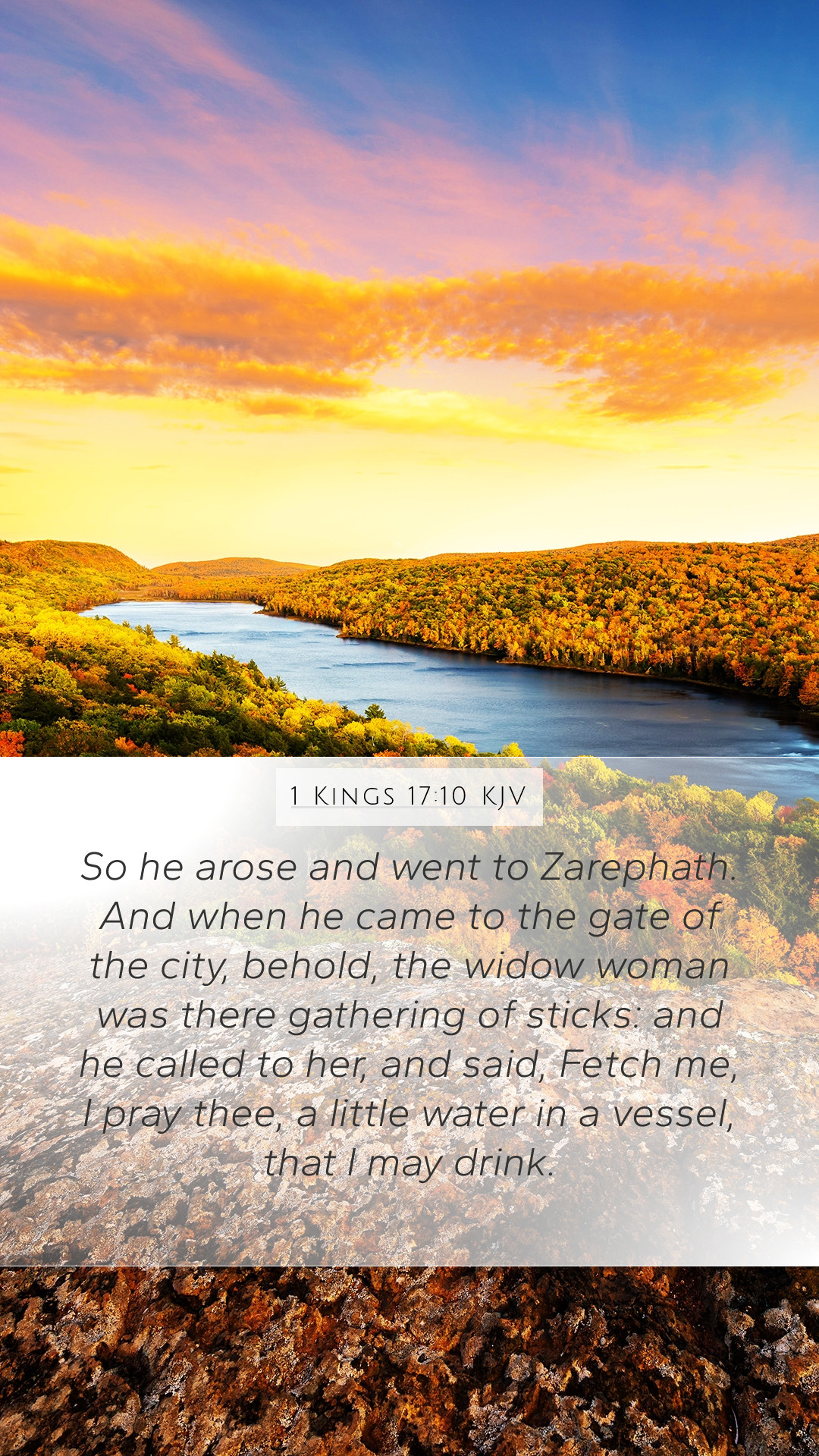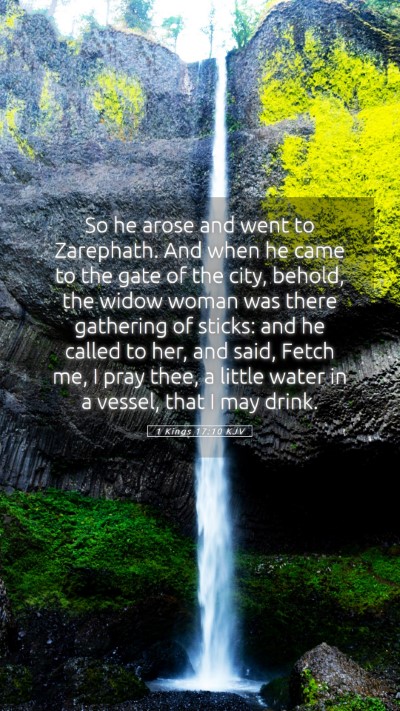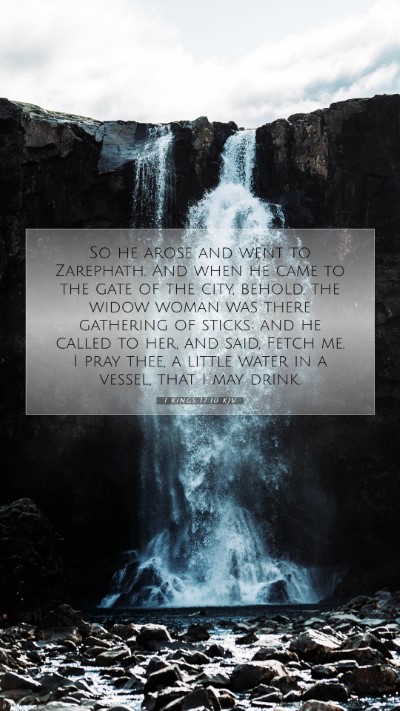Bible Verse Explanation: 1 Kings 17:10
1 Kings 17:10 says: "So he arose and went to Zarephath. And when he came to the gate of the city, behold, a widow was there gathering sticks. And he called to her and said, 'Bring me a little water in a vessel, that I may drink.'"
Contextual Overview
This verse is situated within the narrative of Elijah, a prophet during a time of severe drought and famine in Israel. The context is critical for understanding the miraculous events that unfold as God provides for Elijah through a widow in Zarephath.
Bible Verse Meanings
Understanding Scripture: This narrative not only reveals God's provision but also illustrates the themes of faith and reliance on divine guidance in times of dire need.
- Elijah's Obedience: The obedience of Elijah in going to Zarephath is a testament to his faith in God's word.
- The Widow's Role: The widow's response to Elijah highlights her faith and willingness to serve despite her own desperate situation.
- Divine Provision: The request for water serves as an introduction to the miraculous provision that God will enact through this widow.
Bible Verse Interpretations
Bible verse commentary: According to Matthew Henry, the narrative emphasizes the faith of both Elijah and the widow. Elijah's directive to the widow not only fulfills his own needs but also tests her faith amid her dire circumstances.
Adam Clarke notes that the act of gathering sticks signifies the widow's need for sustenance—she was preparing for her last meal. Elijah’s call for water in a time of drought further signifies profound faith, as he sought to fulfill not just his needs but to provoke a response of faith from the widow.
Albert Barnes comments on the significance of geographical context by stating that Zarephath was within the territory of Sidon, a non-Israelite region, indicating that God's providence extends beyond Israel, displaying His sovereignty in caring for all who exhibit faith.
Biblical Exegesis
In engaging in scripture analysis, we observe how Elijah’s mission signifies God’s mercy towards Israel in a time of apostasy. This passage challenges the reader to discern how God often uses unlikely individuals to manifest His provision and mercy.
- Historical Context: The backdrop of famine highlights the severity of the situation in Israel, invoking themes of divine judgment against idolatry (previously set by Ahab's rule).
- Prophetic Obedience: Elijah’s obedience in seeking sustenance from the widow illustrates the idea that God may call us to unexpected places and situations to manifest His purposes.
- Cultural Implications: The widow, marginalized by her gender and economic status, reflects how God values and often uses the humble for His glory.
Application of the Verse to Daily Life
This passage encourages believers to trust God in challenging circumstances. The widow's actions illustrate the concept of faith in action and remind us that in our times of need, God may call us to serve others, leading to unexpected blessings.
As part of bible study topics, groups discussing this verse might explore themes such as sacrificial giving, the importance of faith-based action, and God’s provision in our lives.
Related Bible Cross References
- 1 Kings 17:9: God's instruction to Elijah highlights divine command before His provision.
- Luke 4:25-26: Jesus references Elijah’s ministry to a widow, indicating the universality of God's care.
- Matthew 6:33: Seek first the kingdom and righteousness; all these things will be added to you, reflecting God’s assurance of provision.
Conclusion
In summarizing the meaning of Bible verses such as 1 Kings 17:10, we recognize how intricately God weaves stories of faith and provision throughout Scripture. Through this passage, believers are called to trust in God's plans and to act in faith even amidst dire circumstances.
Engaging in Bible study insights can profoundly deepen one's understanding of these themes and apply them meaningfully in daily life.


